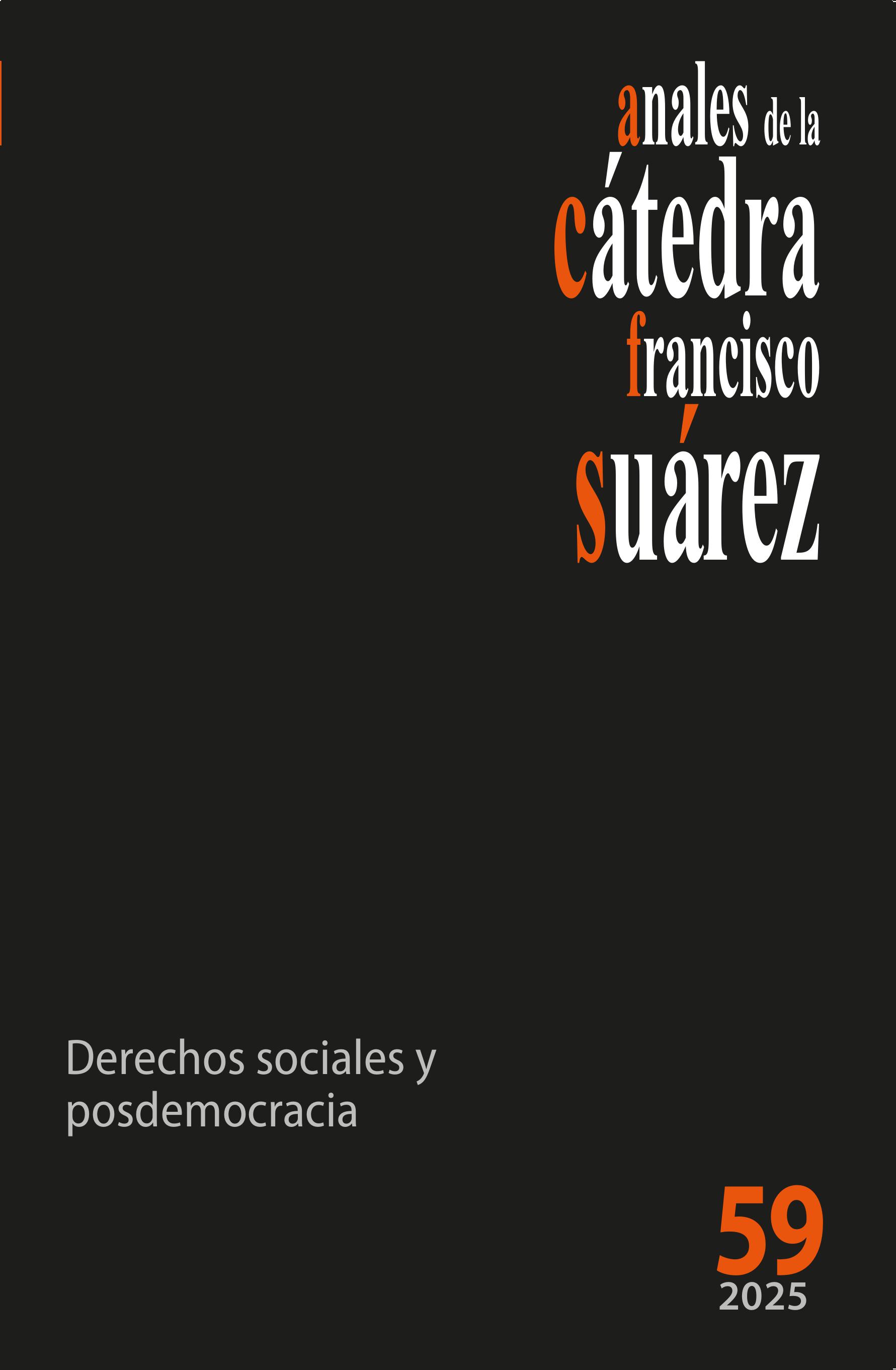One step forward, two steps backwards.
A critical revision of the normative fundament of Europe's social welfare states.
DOI:
https://doi.org/10.30827/acfs.v59i.30605Keywords:
Solidarity, nation state, social welfare state, European Union, postnationalism, Poulantzas, ParsonsAbstract
The modern concept of solidarity stands out for its dynamic character based on a dialectic tension between individualization processes of a pluralistic society on the one hand and the integrative functionality of a limited community on the other. But the immersion of the subjects into institutions which intermediate their individual interests by the “abstract reliability” requires us to revise the relation between the modern state and national identity from a critical perspective inspired by the theory of Nicos Poulantzas. This leads us to a new concept of solidarity where the national homogenization is substituted by a new form of equality founded on autonomous and independent individuals. By reasoning a model of solidarity in this way we are able to resolve the deficiencies of sociological theorists onto the normative fundament of the social welfare state.
Downloads
References
Cook, L., y Inglot, T. (2021). Central and Eastern European Countries. En D. Béland et. al. (Ed.) The Oxford Handbook of the Welfare State (pp. 881 - 898). Oxford: Oxford University Press.
Cook, L. (2010). Eastern Europe and Russia. En F. Castles et. al. (Ed.) The Oxford Handbook of the Welfare State (pp. 671 - 686). Oxford: Oxford University Press.
Ehret, P. (2024). ¿Un nuevo contrato de origen? Hacia un modelo de solidaridad transnacional para Europa. Eunomía: Revista en Cultura de la Legalidad, Nº. 26, pp. 36 - 57.
Ehret, P. (2023). La neurosis de Europa acerca del Estado comercial cerrado. Una
aproximación filosófica a las posibilidades y límites de una Unión Social
Europea. Cuadernos electrónicos de filosofía del derecho, Nº 48, pp. 80 - 110.
Ehret, P. (2022). El homo europeus. ¿Imposible sujeto cultural de una democracia europea? Doxa. Cuadernos de Filosofía del Derecho, Nº 45, pp. 71-97.
Hirsch, J. (1994). Politische Form, politische Institutionen und Staat. En J. Esser, C. Görg, J. Hirsch (Ed.): Politik, Institutionen und Staat. Zur Kritik der Regulationstheorie (pp. 157 – 213). Hamburg: VSA-Verlag.
Kaufmann, F.-X. (2015). Sozialstaat als Kultur. Wiesbaden: Springer Fachmedien.
Keil, D. (2019). Identitätsfragen. Nationale und europäische Identität in der Krise. En D. Keil, J. Wissel (Ed.): Staatsprojekt Europa. Eine staatstheoretische Perspektive auf die Europäische Union (pp. 185 - 205). Baden-Baden: Nomos.
Keil, D. (2015). Territorium, Tradition und nationale Identität. Eine staatstheoretische Perspektive auf den Wandel nationaler Identität in der europäischen Integration. Münster: Verlag Westfälisches Dampfboot.
Parsons, T. (1971). The system of modern societies. Englewood Cliffs, NJ: Prentice-Hall Inc.
Poulantzas, N. (1980). Estado, Poder y Socialismo. Madrid: Siglo XXI.
Therborn, G. (1996). European Modernity and beyond. London: Sage Publications.
Weber, M. (1972). Wirtschaft und Gesellschaft. Tübingen: J.C.B. Mohr.
Zoll, R. (2000). Was ist Solidarität heute? Frankfurt: Suhrkamp.
Downloads
Published
How to Cite
Issue
Section
License
Copyright (c) 2025 Anales de la Cátedra Francisco Suárez

This work is licensed under a Creative Commons Attribution-NonCommercial 4.0 International License.
Authors are the owners of the rights to their works. ACFS requests that publication notice on ACFS is disclosed if they appear later in another place.

















